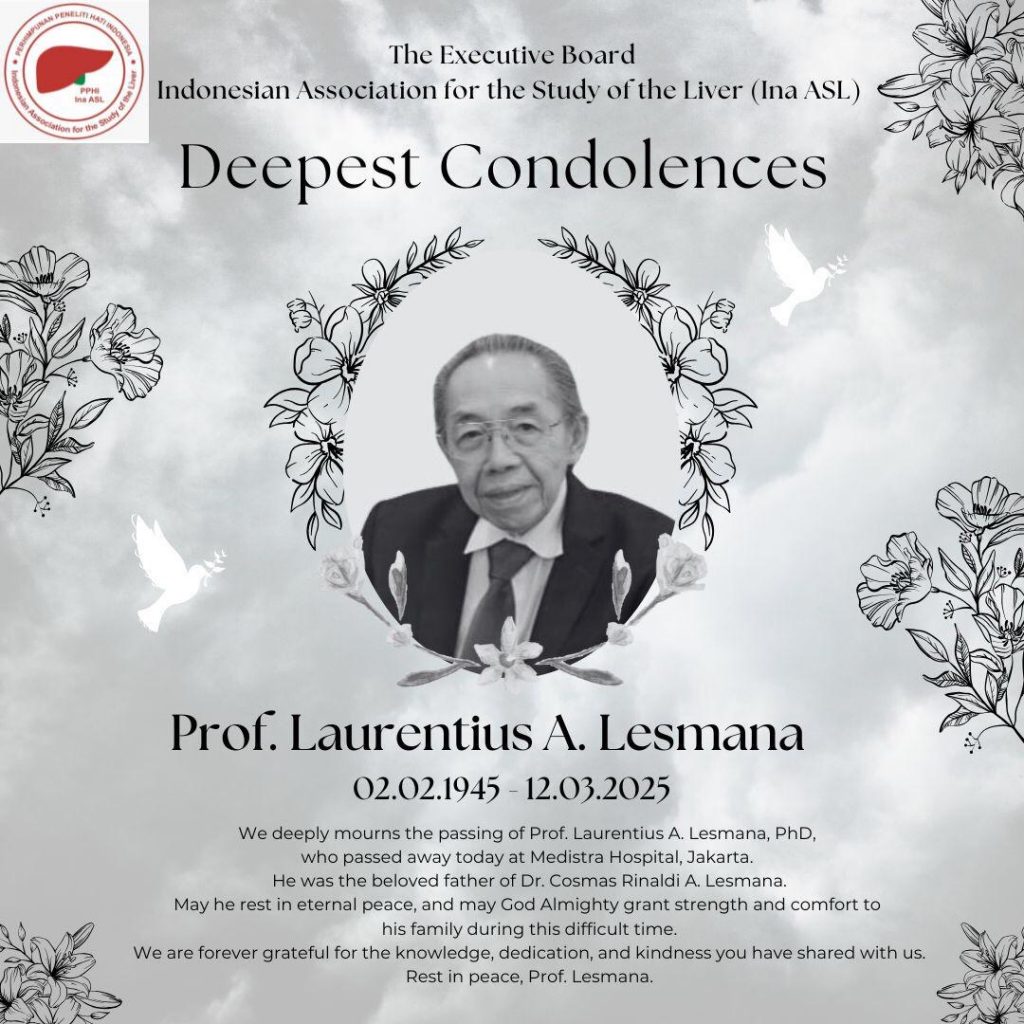Deepest condolences from APASL
We deeply mourn the passing of Prof. Laurentius A. Lesmana, PhD, who passed away on March 12, 2025. He was the member of Steering Committee of APASL, and the Past President of APASL 2005 Annual Meeting.
We received great guidance and instructions from Professor Laurentius A. Lesmana for a long time to APASL.
So many memories flash through our minds.
We would like to express our deepest condolences and pray for the repose of his soul.
May he rest in eternal peace, and may God Almighty grant strength and comfort to his family during this difficult time.
We are forever grateful for the knowledge, dedication, and kindness you have shared with us.
Rest in peace, Prof. Lesmana.
APASL Steering Committee
History
Ever since its inception, in August 1978 in Singapore, APASL (Asian Pacific Association for the Study of the Liver) never looks back but stick to its goal towards advancing the science and practice of Hepatology. Today it is one of the leading associations based on investigation and treatment of liver diseases in the world and the largest scientific body that upholds the standards and profession, research and create improved treatment methods for millions of liver patients particularly in the entire Asia Pacific Region. APASL’s main objectives are to promote the latest scientific advancement and education of hepatology science, exchange of information and the development of consensus, encourage the practice of medicine in liver diseases and also coordinate scientific studies between various scientists and clinicians throughout the region. We hold scientific educational symposia/ conferences developed by leading hepatologists periodically. Our events feature expert speakers presenting the finest data in the most happening topics of liver diseases with high quality scientific technical presentations, followed by varied supporting program. Each of our events intended to meet the growing demands of hepatology as core medical specialty and offers participants the right platform to exchange research, discuss outcomes, and interact with colleagues, focused on liver diseases. Our members include all medical professionals dedicated to hepatology — its research, practice and care. We cover the region from Manchuria in the North, to Australia in the South, to the Pacific Islands in the East and Turkey in the West. Our members are elected on their documented scientific publications. Mentoring, sharing of knowledge and dedication to professional growth and development are among the core values of APASL and its members.
| Official name | The Asian Pacific Association for the Study of the Liver |
|---|
![The Asian Pacific Association for the Study of the Liver [APASL]](https://www.apasl.info/wp-apasl/wp-content/themes/apasl/images/header/img_apasl_logo.png)
